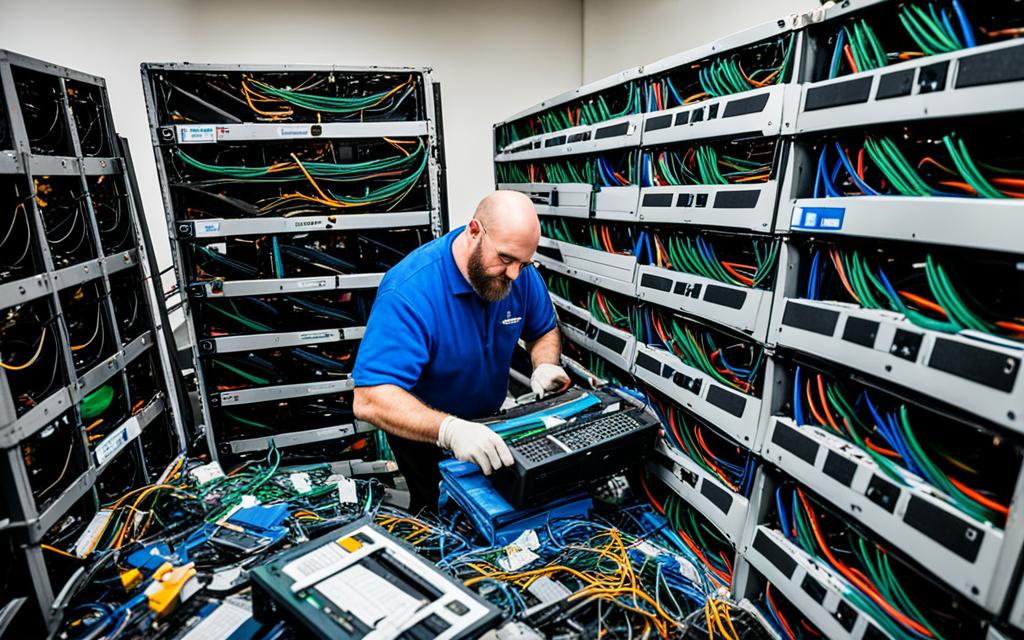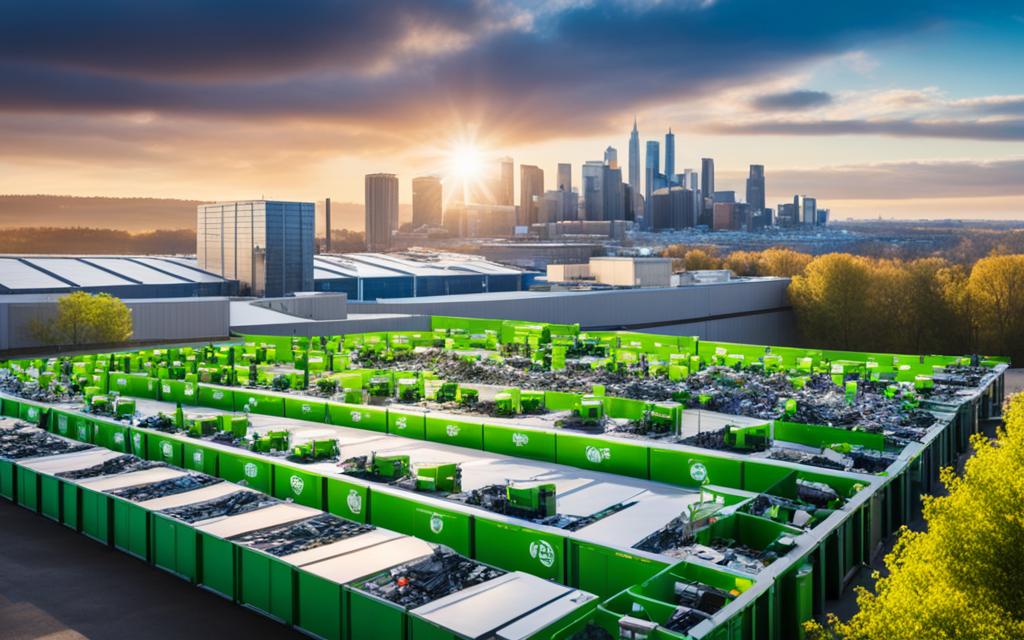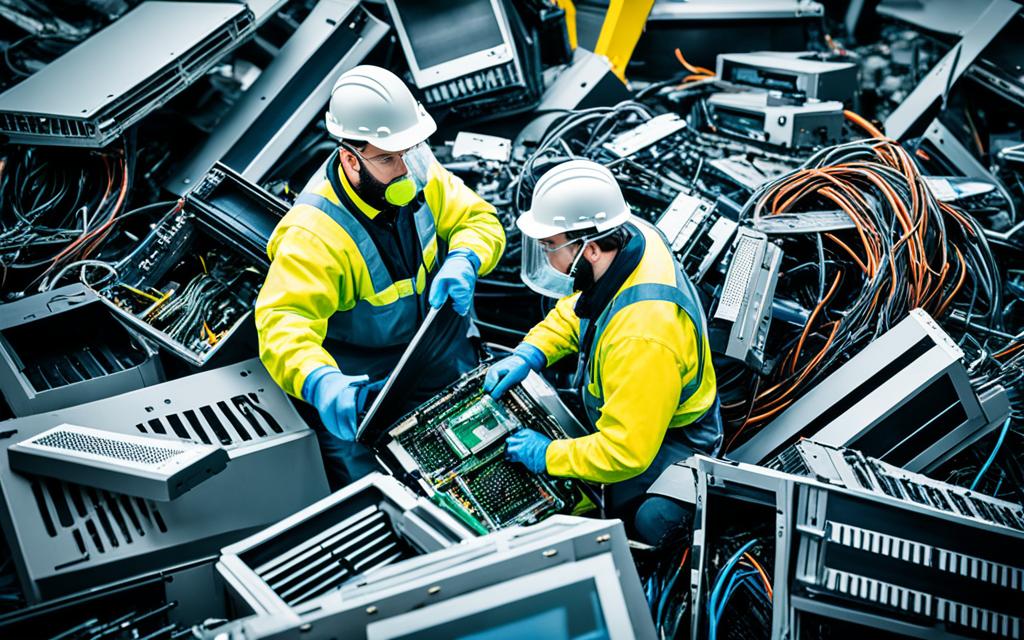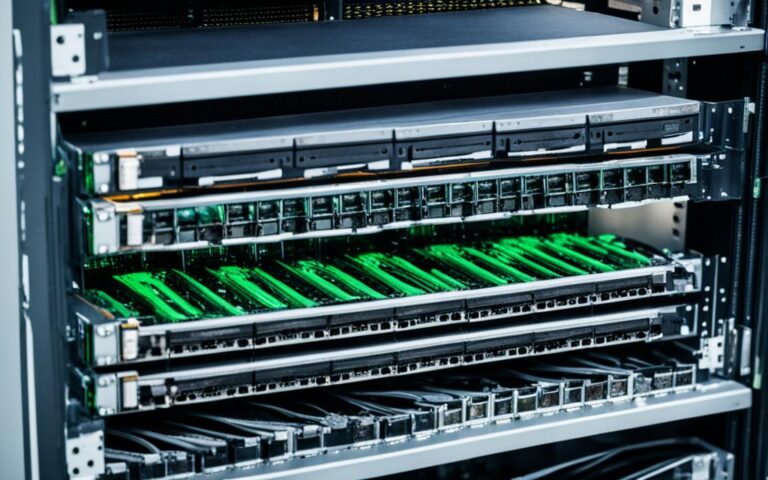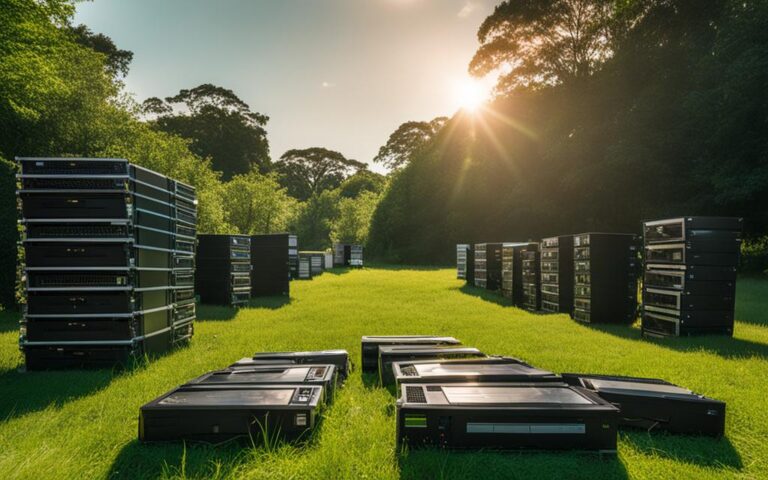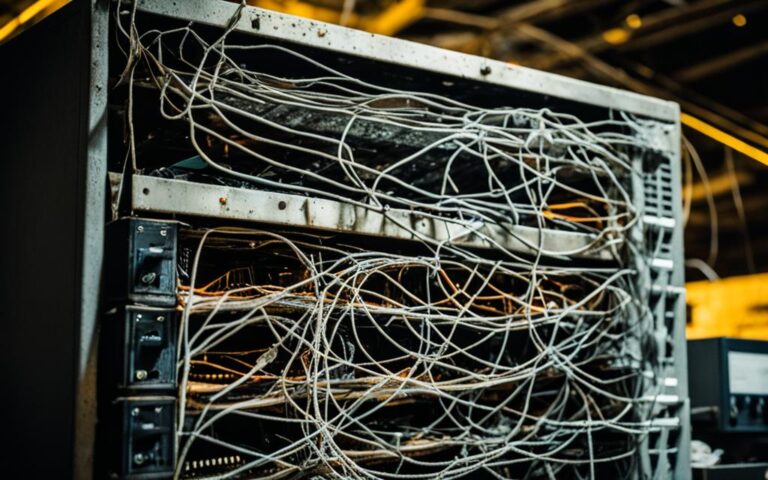How Server Recycling Supports Corporate Social Responsibility (CSR)
Corporate social responsibility (CSR) has become a crucial aspect of business operations in today’s digital age. One important element of CSR is server recycling, which supports companies in their commitment to sustainability and social responsibility.
By recycling servers, companies can minimize their environmental impact, reduce carbon footprint, and promote the circular economy. This article will explore how server recycling can elevate a company’s commitment to CSR and the numerous benefits it brings.
In this digital age, where businesses are increasingly aware of their role in shaping a sustainable future, server recycling stands out as a powerful tool for driving positive change.
Sustainability and social responsibility are at the heart of CSR, and server recycling aligns perfectly with these ideals. It allows companies to mitigate the negative environmental effects of their operations, making a meaningful contribution towards a greener and more responsible future.
Through server recycling, companies can divert electronic waste from landfills, minimizing the harm it causes to our planet. By reusing and refurbishing servers, precious resources are conserved, contributing to a more circular economy.
Moreover, server recycling helps reduce carbon emissions generated by the manufacturing and disposal of electronic equipment. By extending the lifespan of servers, companies can significantly decrease their environmental footprint and operate in a more sustainable manner.
By incorporating server recycling into their CSR initiatives, companies not only demonstrate their commitment to sustainability but also inspire others to follow suit. As a result, the collective impact on our environment and society can be substantial.
Throughout this article, we will delve deeper into the importance of server recycling in the context of corporate social responsibility. We will explore how it contributes to environmental responsibility, the link between information security and CSR, the benefits it brings to companies, and more.
Join us on this journey as we uncover the transformative power of server recycling in supporting corporate social responsibility in the digital age.
The Importance of Environmental Responsibility in CSR
Environmental responsibility is a key component of CSR. Companies need to consider their economic, social, and environmental impact in their business operations. By aligning business values, purpose, and strategy with the needs of clients, companies can embed responsible and ethical principles into everything they do. This includes reducing energy consumption, implementing sustainable procurement practices, and minimizing carbon footprint.
Server recycling plays a significant role in waste management, allowing companies to dispose of electronic equipment responsibly and minimize their environmental impact. By recycling servers, companies not only reduce the amount of electronic waste ending up in landfills but also contribute to the circular economy. Valuable components can be recovered and used to refurbish other devices, prolonging their life cycle and conserving valuable resources.
“Environmental responsibility is not only about reducing waste and emissions, but also about creating a sustainable and environmentally conscious business model. It’s about prioritizing the long-term well-being of our planet and future generations.”
Server recycling supports companies in their commitment to both sustainability and social responsibility. It provides a practical solution for managing electronic waste, reduces the carbon footprint associated with disposal, and contributes to a more sustainable and environmentally conscious business model. By incorporating server recycling into their CSR initiatives, companies can demonstrate their commitment to environmental responsibility and make a positive impact on the planet.
| Benefits of Server Recycling in CSR |
|---|
| Reduces electronic waste ending up in landfills |
| Conserves valuable resources by reusing components |
| Contributes to the circular economy |
| Minimizes carbon footprint associated with disposal |
Server recycling not only addresses the environmental impact of electronic waste but also supports companies in achieving their CSR goals. It allows companies to take active steps towards waste management, reducing their environmental footprint, and promoting a more sustainable future.
The Link Between Information Security and CSR
The management of retired electronic equipment, including servers, is not only a responsibility of a company’s environment and CSR team. With data protection becoming a priority, IT departments also play a vital role in information security at the point of disposal. It is crucial to align information security with CSR and have a coordinated approach to electronic disposal. By ensuring that assets are properly recycled and data is securely managed, companies can demonstrate their commitment to both environmental stewardship and brand protection.
| Benefits of Linking Information Security and CSR | Implications |
|---|---|
| Enhanced Data Protection | Minimize the risk of data breaches during disposal. |
| Legal and Regulatory Compliance | Meet data protection requirements and avoid fines. |
| Positive Reputation | Build trust with customers and stakeholders. |
| Risk Mitigation | Prevent data leaks and potential financial losses. |
Ensuring Secure Data Disposal
- Implement thorough data sanitization practices before disposing of servers.
- Follow industry best practices for securely erasing sensitive information.
- Ensure physical destruction of storage devices if necessary.
- Engage certified data destruction providers for reliable disposal.
By prioritizing information security and integrating it into their CSR initiatives, companies can safeguard sensitive data, protect their brand reputation, and fulfill their environmental responsibilities.
The Benefits of Server Recycling in CSR
Server recycling offers numerous benefits to companies in their CSR efforts. Firstly, it promotes sustainability by reducing the amount of electronic waste ending up in landfills. By reusing and recycling servers, valuable components can be recovered and used to refurbish other devices, prolonging their life cycle. This not only offsets disposal costs but also reduces CO² emissions and conserves valuable resources.
Furthermore, server recycling contributes to the circular economy, a sustainable and environmentally conscious business model. Instead of discarding materials, they are reused and recycled, minimizing waste and maximizing resource efficiency. Through the circular economy, companies can achieve value recovery and create a closed-loop system that reduces their environmental footprint.
“Server recycling is not just about environmental responsibility; it is a strategic business practice that aligns with the goals of CSR and sustainability. By recycling servers, companies demonstrate their commitment to the circular economy, reducing CO² emissions, conserving resources, and mitigating environmental damage.” – James Johnson, Sustainability Manager
With server recycling, companies can unlock opportunities for cost savings and revenue generation as well. Valuable components recovered from recycled servers can be repurposed, sold, or used in the production of new devices. This process helps companies recover value from outdated or decommissioned servers while reducing their environmental impact.
The Benefits of Server Recycling in CSR:
- Promotes sustainability by reducing electronic waste
- Minimizes CO² emissions and conserves valuable resources
- Contributes to the circular economy and maximizes resource efficiency
- Enables cost savings and revenue generation through value recovery
Server recycling exemplifies the principles of CSR and serves as a tangible demonstration of a company’s commitment to sustainability. By incorporating server recycling practices into their CSR initiatives, companies can make a positive impact on the environment, reduce their carbon footprint, and contribute to creating a more sustainable future.
Conclusion
In conclusion, server recycling is a vital component of corporate social responsibility (CSR) in the digital age. By implementing responsible waste management practices, companies can demonstrate their commitment to sustainability and social responsibility. Server recycling not only helps minimize environmental impact and reduce carbon footprint, but also promotes the circular economy and resource recovery.
By incorporating server recycling into their CSR initiatives, companies can elevate their commitment to sustainability and contribute to a more environmentally conscious marketplace. Through server recycling, companies play an active role in reducing electronic waste and conserving valuable resources. This not only benefits the company’s reputation but also supports a greener future for all.
For more information on server recycling in the United Kingdom and how it can align with your CSR commitment, visit Server Recycling UK. Take the lead in corporate social responsibility and make a difference in building a sustainable future.
FAQ
How does server recycling support corporate social responsibility (CSR)?
Server recycling supports CSR by minimizing environmental impact, reducing carbon footprint, and promoting the circular economy.
Why is environmental responsibility important in CSR?
Environmental responsibility is important in CSR because it considers the economic, social, and environmental impact of business operations.
What is the link between information security and CSR?
Information security and CSR are linked as companies need to secure data during server disposal to demonstrate their commitment to environmental stewardship and brand protection.
What are the benefits of server recycling in CSR?
Server recycling benefits CSR efforts by reducing electronic waste in landfills, conserving resources, and contributing to a more sustainable and environmentally conscious business model.


